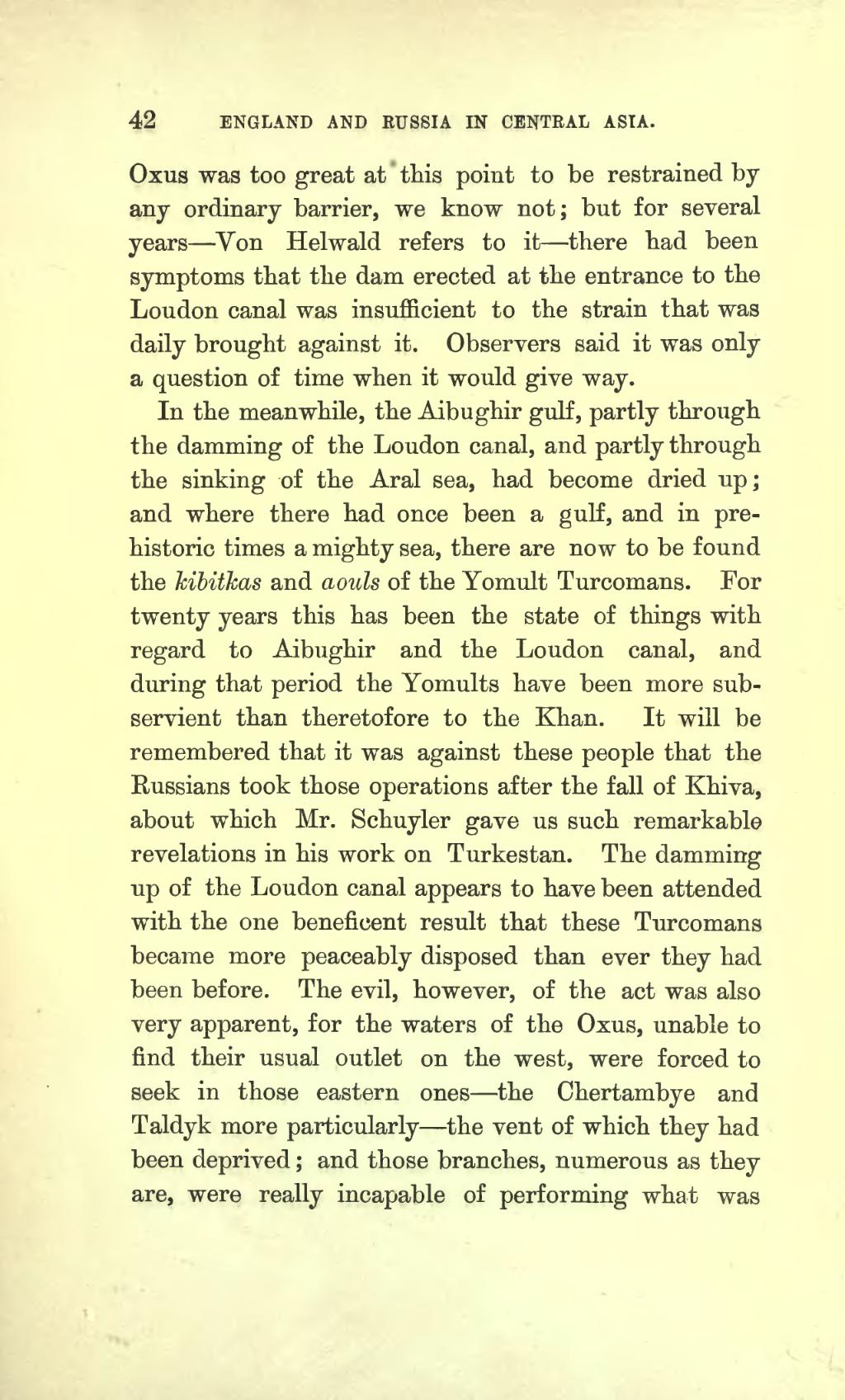Oxus was too great at this point to be restrained by any ordinary barrier, we know not; but for several years—Von Helwald refers to it—there bad been symptoms that the dam erected at the entrance to the Loudon canal was insufficient to the strain that was daily brought against it. Observers said it was only a question of time when it would give way.
In the meanwhile, the Aibughir gulf, partly through the damming of the Loudon canal, and partly through the sinking of the Aral sea, had become dried up; and where there had once been a gulf, and in prehistoric times a mighty sea, there are now to be found the kibitkas and aouls of the Yomult Turcomans. For twenty years this has been the state of things with regard to Aibughir and the Loudon canal, and during that period the Yomults have been more subservient than theretofore to the Khan. It will be remembered that it was against these people that the Russians took those operations after the fall of Khiva, about which Mr. Schuyler gave us such remarkable revelations in his work on Turkestan. The damming up of the Loudon canal appears to have been attended with the one beneficent result that these Turcomans became more peaceably disposed than ever they had been before. The evil, however, of the act was also very apparent, for the waters of the Oxus, unable to find their usual outlet on the west, were forced to seek in those eastern ones—the Chertambye and Taldyk more particularly—the vent of which they had been deprived; and those branches, numerous as they are, were really incapable of performing what was
